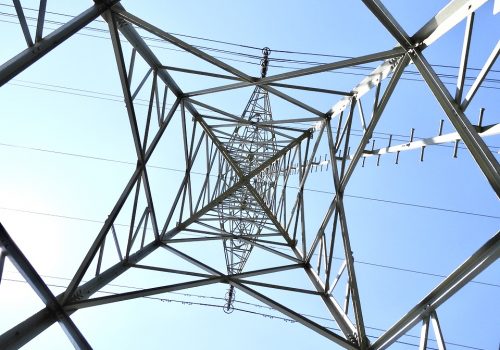Event recap
On December 3, 2021, the Atlantic Council Global Energy Center hosted a discussion on the recent whiplash in global oil markets featuring Raad Alkadiri, managing director for energy, climate, and resources at Eurasia Group, Dr. Helima Croft, managing director and global head of commodity strategy at RBC Capital Markets, Greg Sharenow, managing director and portfolio manager at PIMCO, and Dr. Paul Sullivan, nonresident senior fellow at the Atlantic Council Global Energy Center. The conversation was moderated by Randolph Bell, senior director and Richard Morningstar chair for global energy security at the Global Energy Center.
The panel began with a debate on the Organization of the Petroleum Exporting Countries (OPEC)’s decision to continue with its 400,000 barrels per day supply increase in January despite concerns over the Omicron variant. Croft underlined the geopolitical context of the decision, noting it came after US officials spoke openly about the possibility of another release from the Strategic Petroleum Reserve (SPR), thus providing a diplomatic win for the Biden administration. Sullivan, on the other hand, argued that the SPR release did not factor into OPEC’s decision, but was the product of vigorous diplomacy from major oil-consuming nations.
Alkadiri added “this is as much a US domestic political story as it is an OPEC or geopolitical story,” noting that US President Biden views lower gasoline prices as essential to passing his Build Back Better Act. On the other hand, Alkadiri sees Saudi Arabia as having to consider price, politics, and its relationship with the United States as pressures that pushed it to keep increasing production. “If you looked at it from the market, we’d have said the ability to set price is more important than the politics and the precedent,” Alkadiri argued, “the reality is that it is the politics and the precedent that has seemingly been foremost on their mind.”
Sharenow elaborated on the technical reasons for the oil market’s sudden decline the previous week. He attributed a combination of factors, including low liquidity following the Thanksgiving holiday in the United States, the shattering of the market’s previously tremendous optimism, and volatility in options trading . The SPR release had minimal influence on the price drop, nor did modestly increasing OPEC production, according to Sharenow.
Comparing Trump’s and Biden’s approaches to dealing with OPEC, Alkadiri argued Trump’s Twitter diplomacy in the early days of the pandemic was successful in moving OPEC because it played to the bloc’s instincts and forced them to react; Biden’s more subtle diplomacy, on the other hand, is tougher to accomplish and thus more impressive, concluded Alkadiri. Croft pointed to Trump’s close bilateral relationship with Saudi Arabia as a factor that made it easier and quicker to make requests. She viewed Biden’s coordinated SPR release as creating a credible threat for future short-term bargaining with OPEC, possibly laying the groundwork for an anti-OPEC of oil consumers in the future.
In addition to the US-OPEC relationship, the intra-OPEC state of affairs drew concern and debate. Sharenow surmised the United Arab Emirates, Kuwait, and Saudi Arabia will have no trouble turning on spare capacity and hitting quotas, but that the rest of OPEC looks unlikely to be able to increase output. Sharenow also viewed Russia’s ability to increase output as uncertain, but observed that they have invested considerably in drilling for next year. Sullivan highlighted the difficulty of investing in the rest of OPEC beyond the Gulf states in an era of higher interest rates and higher expectations for return on capital.
Looking forward, Sharenow worried that spare capacity will remain two million barrels per day below 2019 levels, despite a return to 2019 levels of demand. Croft wondered if that could be made up with Iranian oil reentering the market in the aftermath of a return to the 2015 nuclear deal, but Sullivan was skeptical of a deal happening. Alkadiri suggested that market share will be a major issue for OPEC countries going forward, especially in the face of the energy transition and demand for lower-carbon oil. Croft was concerned that the disparity between the gulf countries and the rest of OPEC will become starker and lead to political, economic, and social challenges as the energy transition intensifies.
Jordan Bekenstein is a Fall 2021 Young Global Professional at the Atlantic Council Global Energy Center
Featuring
Raad Alkadiri
Managing Director, Energy, Climate, and Resources
Eurasia Group
Dr. Helima Croft
Managing Director and Global Head of Commodity Strategy
RBC Capital Markets
Greg Sharenow
Managing Director and Portfolio Manager
PIMCO
Dr. Paul Sullivan
Nonresident Senior Fellow
Atlantic Council Global Energy Center

